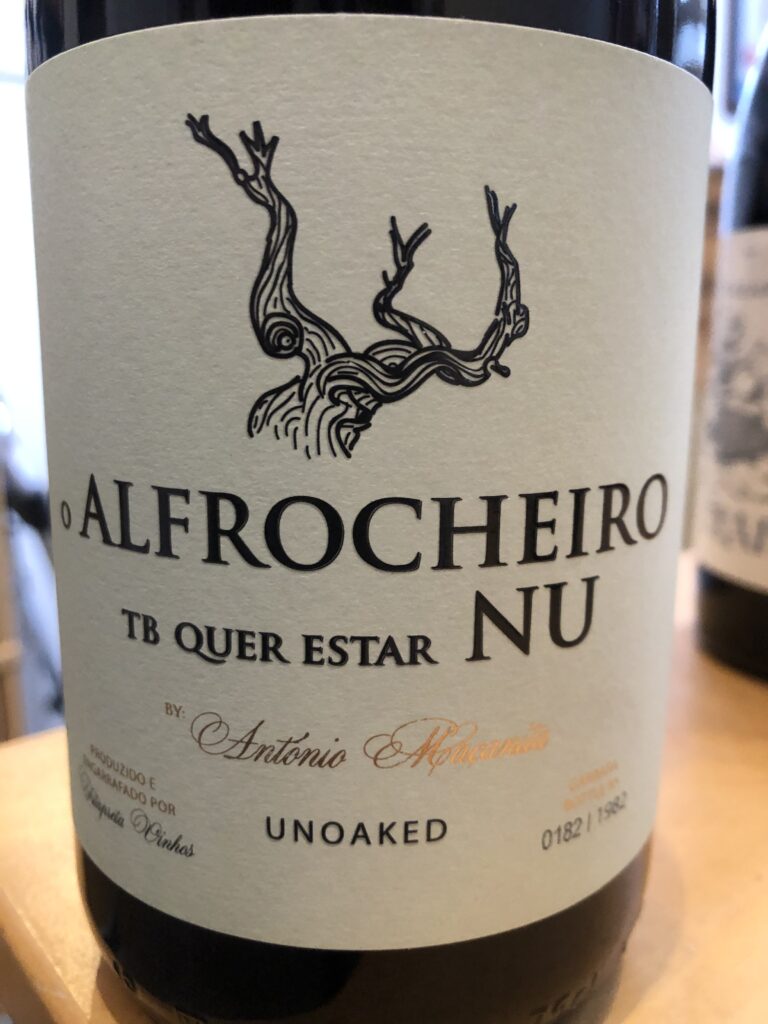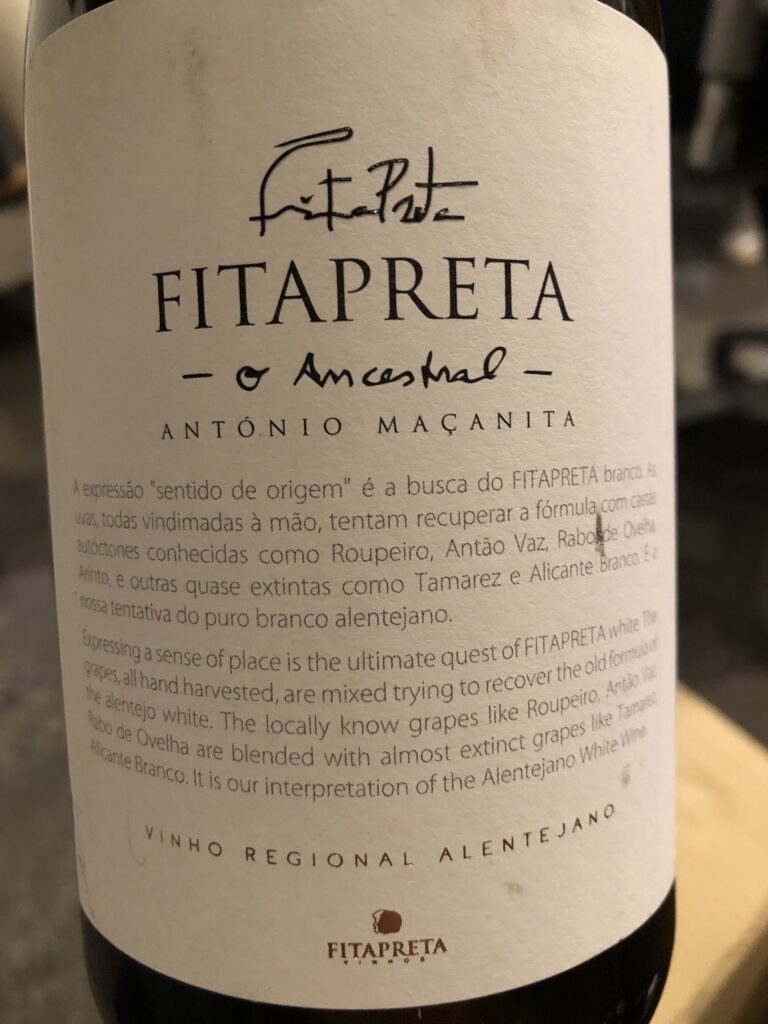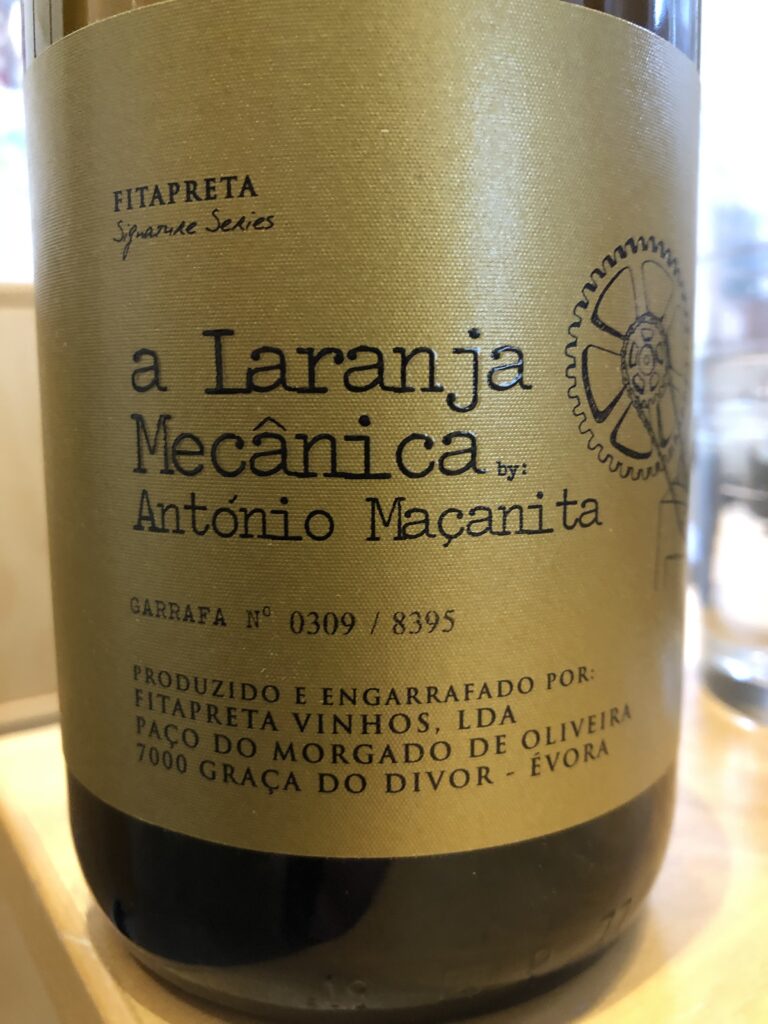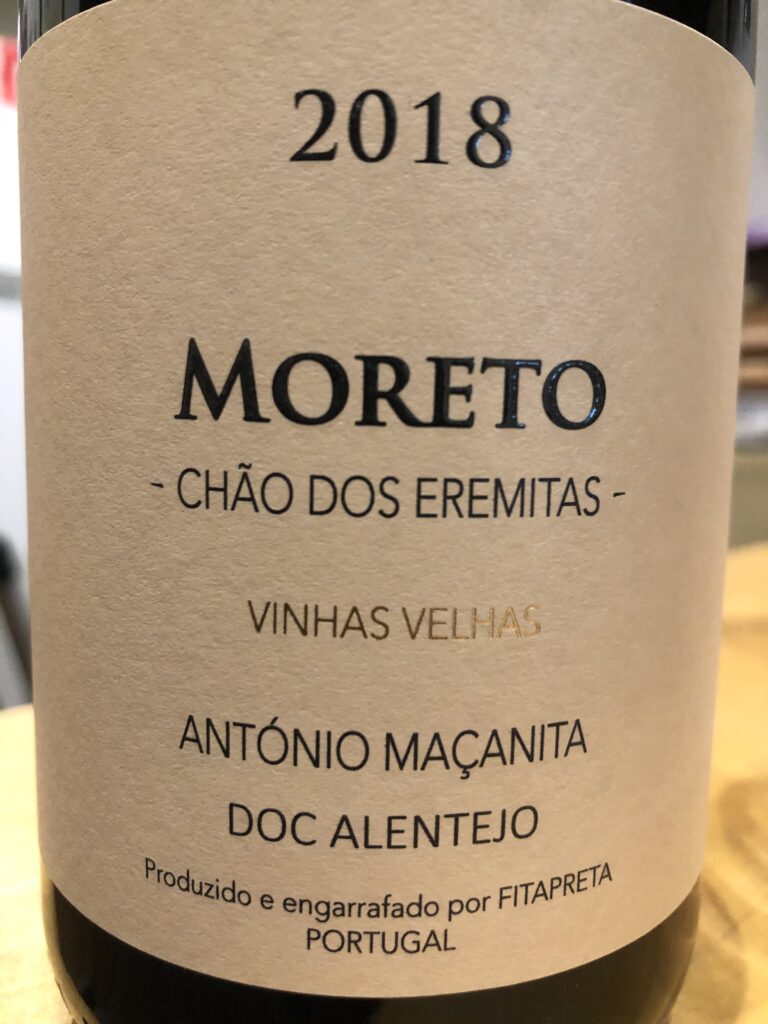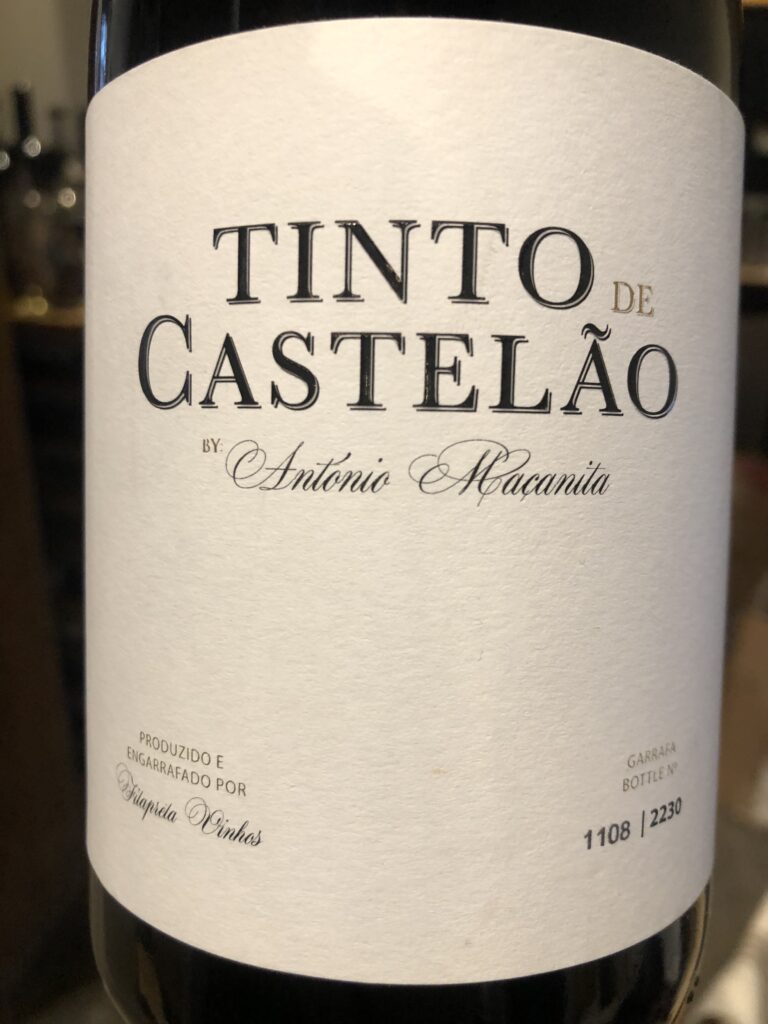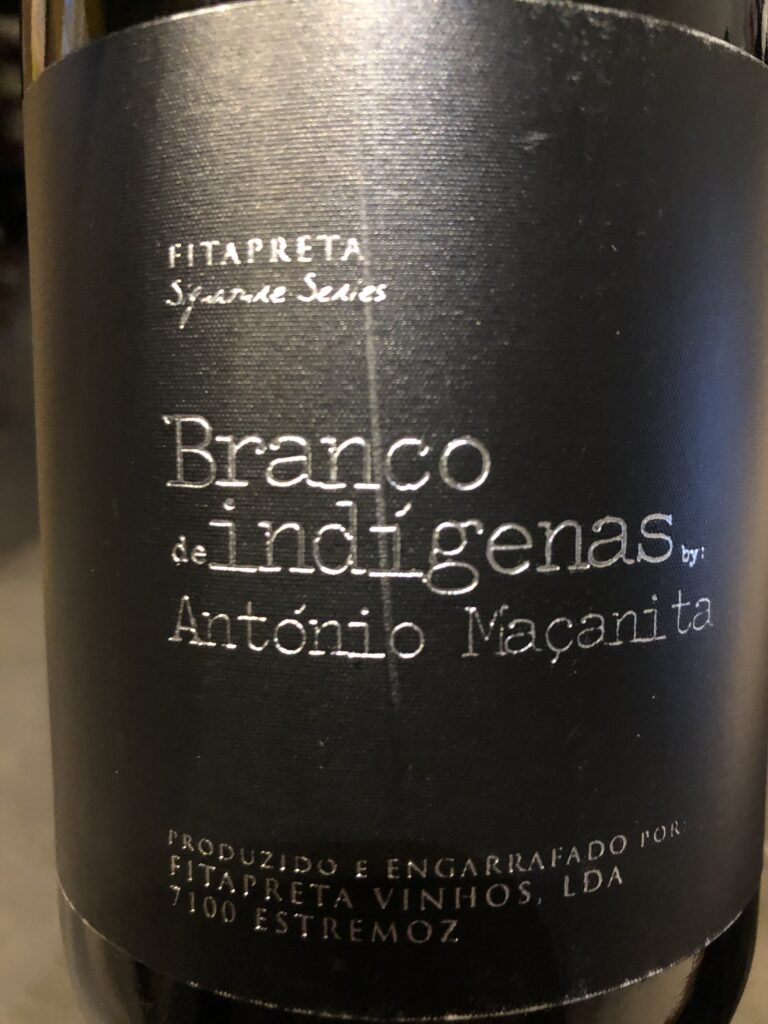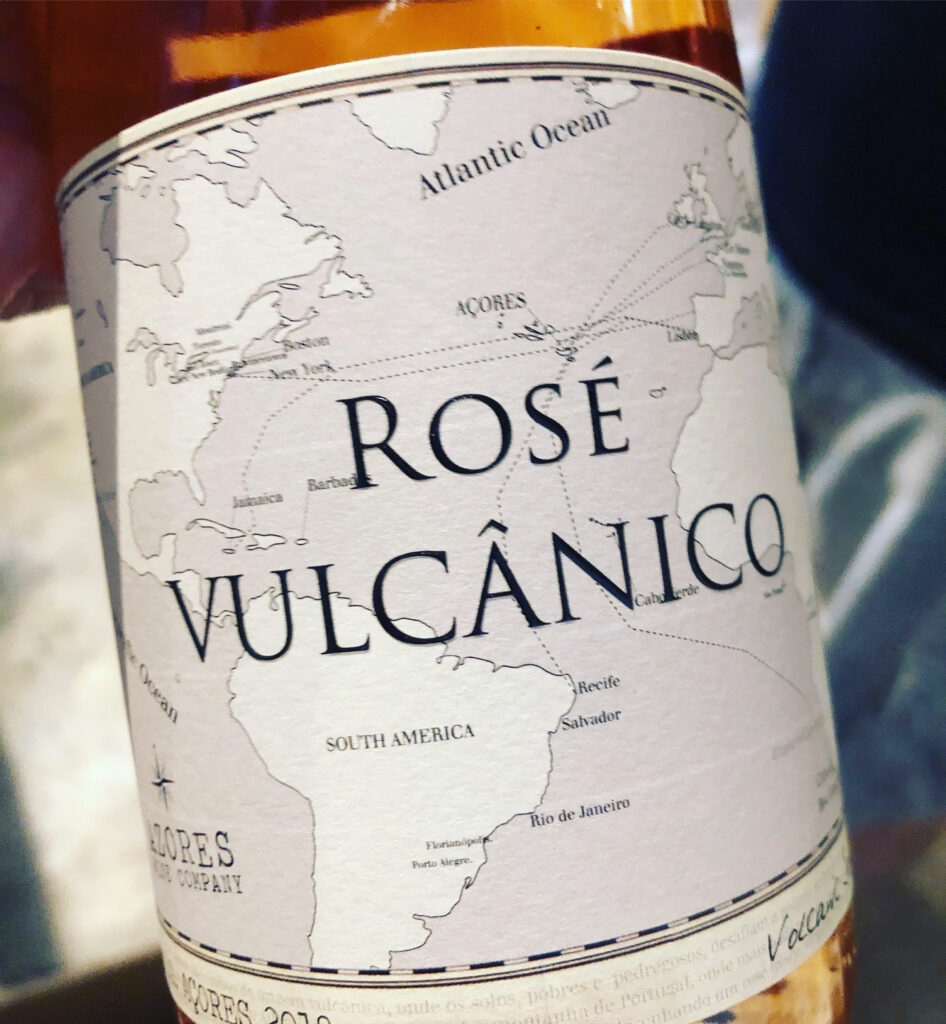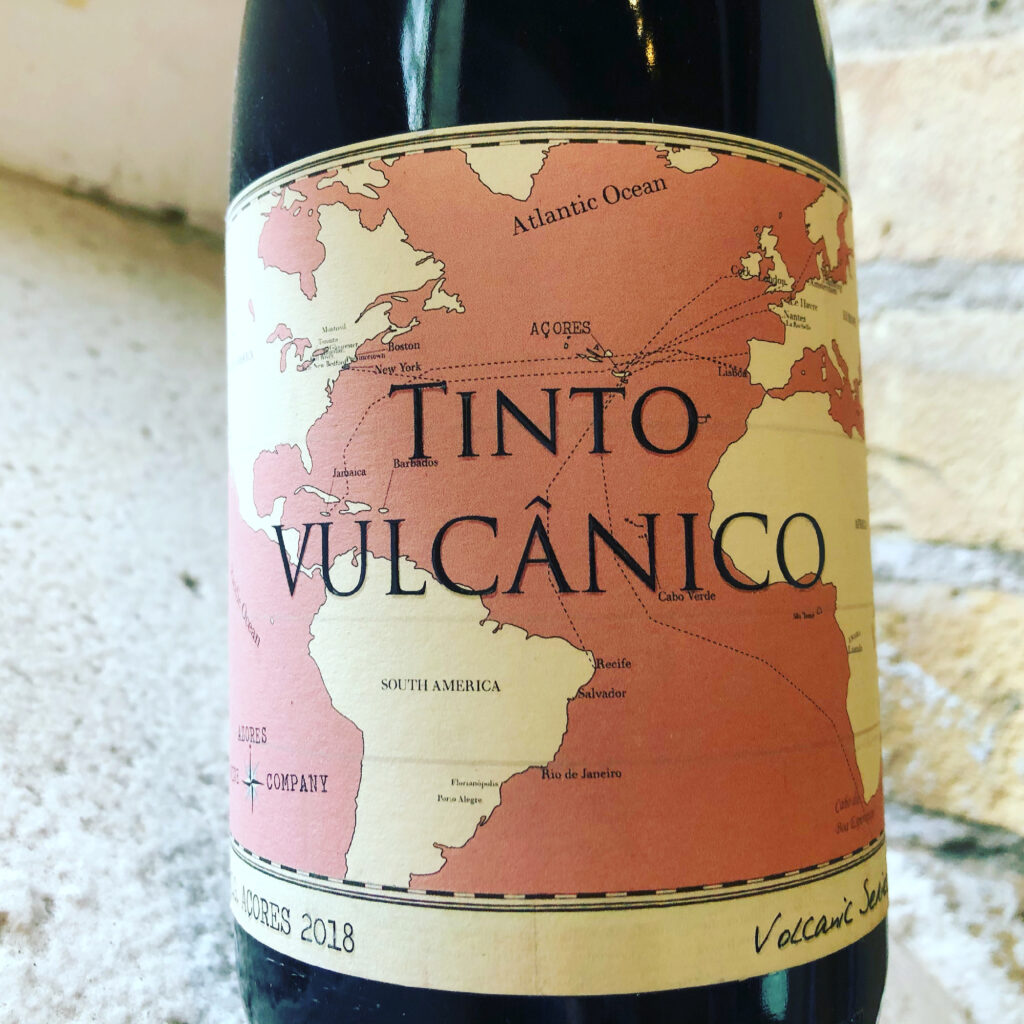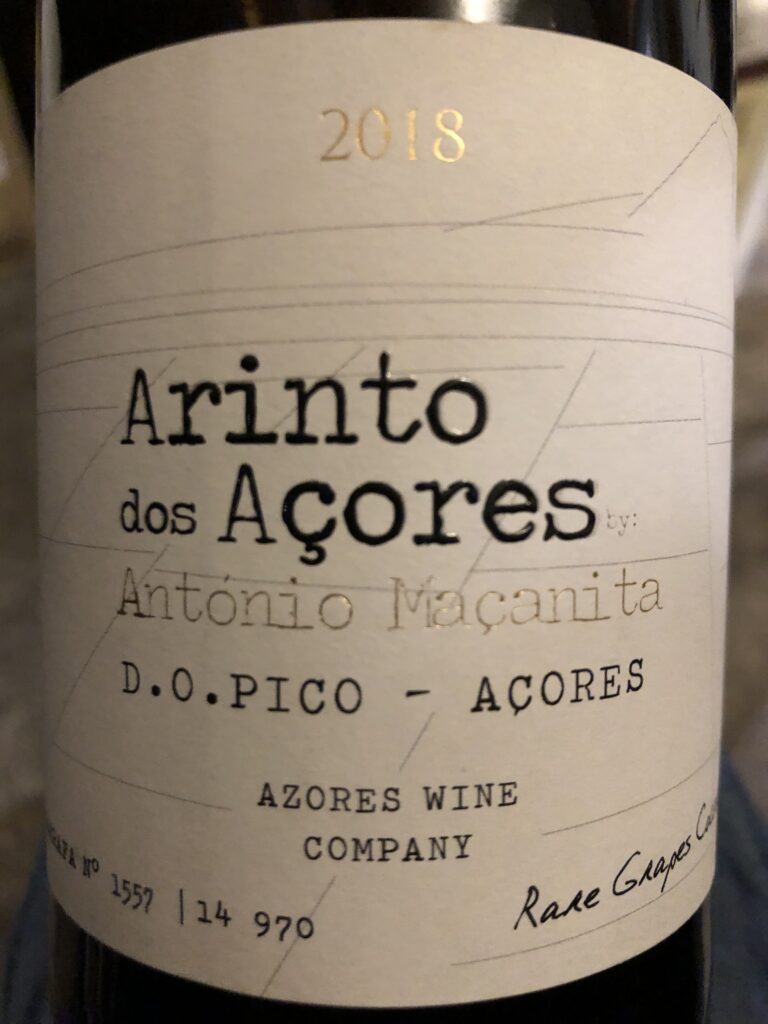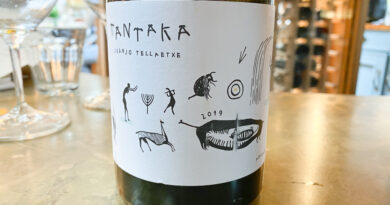Tasting the Latest Releases from António Maçanita
Charismatic António Maçanita is a familiar name in the Portuguese wine world, releasing more than 50 labels each year. In addition to Maçanita Vinhos, a Douro project together with his winemaker sister Joana, he is the winemaker for Fitapreta Vinhos, in Alentejo, as well as Azores Wine Co, based on Pico. He also consults on a number of other projects throughout the country. In 2018, he was named Winemaker of the Year from Revista dos Vinhos, and in 2021 Fitapreta Vinhos was named producer of the year by the same publication.
I recently tasted through these Maçanita releases in Toronto, Canada.
Maçanita Vinhos, Douro Valley
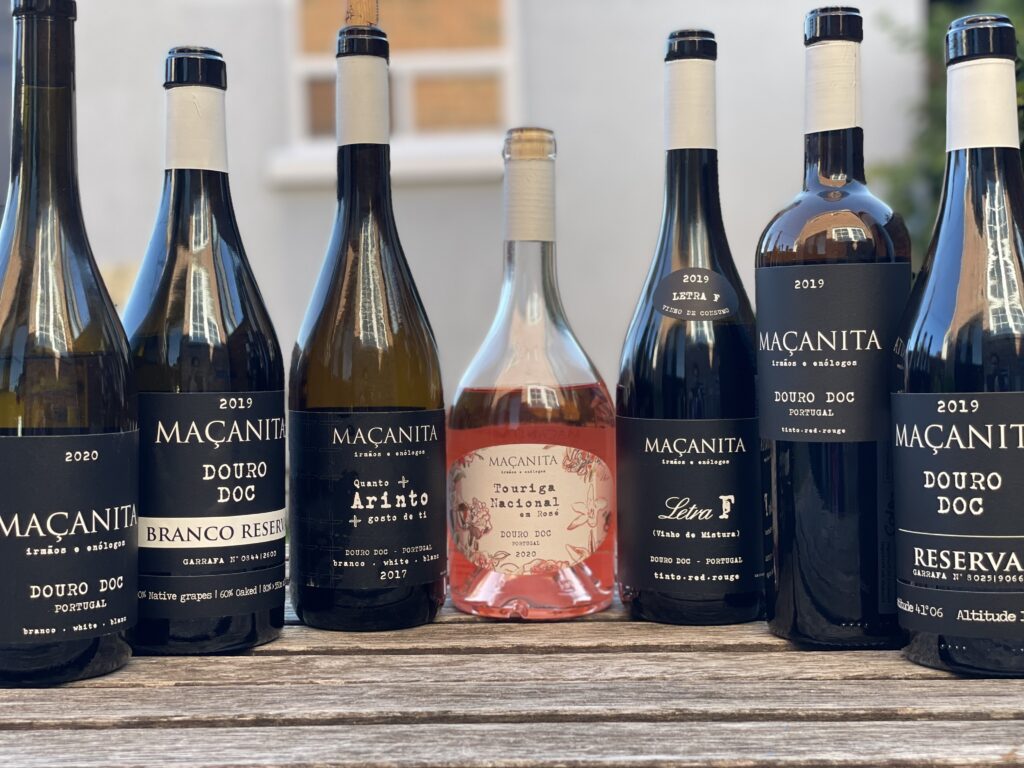
Maçanita Branco 2020, DOC Douro Valley, Portugal
This Branco blends Viosinho, Códega do Larinho, and Gouveio, mostly from the Baixo Corgo (80%), with the remainder from the Cima Corgo, and from vines between 580-700m on granite and schistous soils. This was whole bunch pressed, then fermented and aged in stainless for 6 months, on lees. Subtle white blossoms, pear, green apple, green fig, lemon peel is slicked with lees, and cut with a bracing stony schistous hum that lingers long on the finish. Accessible, bright, and drinking very smartly now. 90/100
Maçanita Branco Reserva 2019, DOC Douro Valley, Portugal
This is the siblings’ first Branco Reserva release. This blend of Arinto, Rabigato, and a field blend of traditional Douro grapes comes from vines mostly 500m and above. This was whole bunch pressed, then fermented in 40% stainless and 60% neutral oak barrels where it remained for 14 months, with bâtonnage. Green fig, quince, subtle white peach, kernel rule the medium palate, with an ample bed of earthy lees, and a sliver of lemon pith around the sides. The schistous soils lend a textural tension throughout the softer palate, and linger on the saline finish. Very much in youth, give this time in the glass or your cellar to relax into itself. 90/100
Maçanita Quanto + Arinto + Gosto de ti 2017, DOC Douro Valley, Portugal
How Much Plus Arinto Do I Love You? This Douro Arinto comes from vineyards up to 550m, was whole bunch pressed and fermented in a mix of 70% older barrique and 30% stainless. Lovely to see Arinto with some age, still holding its acid backbone, but wrapped with pine nuts, kernel, honeysuckle, with kisses of brown butter on the saline finish. There is a lovely completeness to this wine, drinking now. 92/100
Maçanita Touriga Nacional em Rosé 2020, DOC Douro Valley, Portugal
This Touriga Nacional rosé comes from the Cima Corgo, around 200m altitude. Gently crushed grapes were macerated for 3 to 6 hours, before ferment and a short rest in stainless. Pouring a blushing pink hue, this dry rosé rings with wild strawberry, cherry blossoms, tightened with a grippy pink grapefruit pith. Acidity is racy, easily skipping this along the slight palate to a tart finish. Fresh and vibrant, meant for drinking now. 89/100
Maçanita Tinto 2019, DOC Douro Valley, Portugal
This is a blend of Touriga Nacional, Sousão (now renamed Sezão) and a field blend of old vines, all from the Cima Corgo, and is native fermented with twenty days on skins in stainless, where it remains for one year. Fresh plum, wild blackberries, perfumed cherries leap from the glass, scented with rockrose and pink peppercorns, and framed with long, firm and finely grippy tannins. There is a great tension and freshness throughout from the schist soils, and hands-off treatment. Very saline, and moreish. 91/100
Maçanita Tinto Reserva 2019, DOC Douro Valley, Portugal
This Reserva blends 64% Sousão (now called Sezão), 30% Touriga Nacional, and 6% field blend of traditional Douro grapes. This was native fermented and macerated on skins for 26 days before aging 18 months in French oak barrels (25% new). Black plum, wild blackberry, tart black cherry, violets is seasoned with toasty spices, and gripped with firm tannins through the saline finish. The schist gives a tight, firm grip and ample freshness to the 14% wine, still very much in youth. Open this in advance, or give it a year or two in the cellar. Certainly of a place, and only could be Douro. 92/100
Maçanita Letra F Vinho de Mistura 2019, DOC Douro Valley, Portugal
Letter F is a play on words for the categorization system for port grapes in the Douro, finishing at letter E. From the Cima Corgo and 480m – 720m altitude, this is a blend of more than 20 red and white varieties, including many very old vines. After a cold soak, this was native fermented in small lagares, with 28 days on skins before ageing 1 year in stainless. As one would imagine, with all those grapes, this is incredibly perfumed and complexed, with purple florals, tight plum, rockrose, pink peppercorns, cherry blossoms, scrubby lavender, and rosemary leading the medium palate. Tannins are long, fine, and grippy, guiding this lighter bodied red to a very saline, schistous finish. Such an intriguing and characterful wine; seriously smashable. 92/100
Fitapreta, Alentejo
Fitapreta Branco 2019, VR Alentejano, Portugal
This blend of Roupeiro, Rabo de Ovelha, Antão vaz, Tamarez, Alicante Branco, and Arinto are sourced from Alentejo’s granitic soils, and vines from 30-50 years, up to 400m in altitude. After a native ferment in stainless barrels, this remained there on lees for 6 months prior to bottling. Ripe and generous with quince, yellow apple, beeswax stretched along a stony lees-bedded palate. This finishes with a lingering stoniness. 91/100
Fitapreta Branco de Indígenas 2015, VR Alentejano, Portugal
From António Maçanita’s Signature Series, this Branco de Indígenas is a blend of 80/20 Arinto/Verdelho from Alentejo’s granite and schist soils, native fermented and aged for a year in neutral barrels. Super salty from tip to tail, with roasted pine nuts, ripe quince, wild meadow grasses, wet stones on a potent, medium-bodied, very oily palate. So much authenticity and power here, in a streamlined package. Showing beautifully now, and quite memorable. 92/100
Fitapreta a Laranja Mecânica 2019, VR Alentejano, Portugal
This is a new orange wine release from António Maçanita, his Clockwork Orange. Arinto, Roupeiro, Verdelho, Antão Vaz, Alincante Branco, Trincadeira-das-Pratas, Fernão Pires make up the Alentejo coferment blend, from various vineyards and vines 15-50 years old, on granite soils. After the first whole bunch pressing, 10-15% of the remaining juice macerated on the skins for a week, and then was pressed again and reunited with the whole, where it native fermented. It remained in stainless on lees until it was bottled, unfiltered, the following fall. Pouring a hazy golden hue, this orange wine is teeming with alluring bergamot, quince, and stencilled with finely grippy tannins and that characteristic granitic hum. Fantastic texture, salinity, and moreishness in this medium bodied wine. 91/100
Fitapreta o Alfrocheiro TB Quer Estar Nu 2018, DOC Alentejo, Portugal
Alfrocheiro Likes to be Naked. Going on that premise, which inspired the name, this, the first wine made from these 47 year old dry farmed vines, sees no time in oak, to reveal the pure nature of the grape. Rooted in broken schist and granite soils, this was native fermented and rested in stainless barrels until bottling. The dense 15.5% palate is compact with wild blackberry and black plum, scented with fragrant cherry blossoms, bedded with a fine layer of wax, and seasoned with medicinal herbal scrub. Tannins are long, fine, firm, and structural, housing this to a lingering finish. Quite impactful, and age-worthy. Only 1982 bottles were produced. 91/100
Fitapreta Moreto Chão Dos Eremitas Vinhas Velhas 2018, DOC Alentejo, Portugal
When António Maçanita came across this special vineyard first planted over 150 years old, and knew he needed to make wine of it. His new Chão dos Eremitas range honours these near-extinct grapes, named after the vineyard they are rooted in, in honour of the Hermit monks of the Order of São Paulo who worked these lands. This is Moreto (50 year old vines), a crossing between Sarigo and Alfrocheiro Preto. 30% was bled off to give concentration before fermentation with 30% whole bunch, over 40 days. Post ferment, this rested one year in older barrels. Bright and fresh, with pomegranate, blackcurrant jam, and graphite, this has a tight, firm structure, a fleshy palate, and an elegance not typically associated with the variety, or with Alentejo. Tannins are fine, but firm, and acidity is vibrant to a very lengthy finish, carrying the 15%. Only 1993 bottles were produced. 92/100
Fitapreta Tinto de Castelão 2015, VR Alentejano, Portugal
This Castelão (aka Periquita) came from the granite-clay soils of the Serra d’orsa mountain, its regional home. To honour that this grape needs time, winemaker António Maçanita has given it a slow native ferment and 30 day maceration, one year in neutral barrel, and another year in bottle before release. Brooding black plum, dark cherry, wild thorny blackberry are layered with tobacco on a fresh palate, one weighted with leathery, sinewy tannins. There’s a swing of balsamic that licks at the back of the palate, hinting at the wildness of Castelão. Leaning rustic, with freshness, this could take on roasted wild game or wild mushrooms. 89/100
Fitapreta Trincadeira Não é Tão Preta Signature Series 2015, VR Alentejano, Portugal
This Trincadeira Preta (aka Tinta Amarela) ‘Is Not Black’, as the label references, and refers to the fact António Maçanita picks this early, against custom, and unlike most who wait until the fragile grape is super-ripe and often raisinated. This comes from the granite and schist soils of Alentejo, and was native fermented and aged in stainless. Balsamic, blackcurrant, black plums, dried violets are held brisk and taut, humming with black pepper and lofted with acidity. Quite fresh, belying its 14 degrees. A lovely opportunity to taste a pure Trincadeira. 91/100
Fitapreta Palpite Reserva 2017, VR Alentejano, Portugal
This blend of Aragonez, Alicante Bouschet, Trincadeira, and Touriga Nacional is Fitapreta’s top wine that they make every year. Very perfumed wild black fruit, blueberries, thorns, musk flood this full bodied Alentejo red, growing on schist soils. After a native ferment this aged 18 months in French oak prior to bottling. Tannins are dusky and soft, hugging the ripened fruit to a warming finish. Primed for drinking now, but with a future ahead. 90/100
Fitapreta A Touriga vai Nua 2017, DOC Alentejo, Portugal
Brisk purple and blue fruit, dusky spicing, alluring purple florals, riffing salt float through this unoaked touriga nacional, from 30 year old vines growing at 300-400m in schistous soils. “O Rei vai nua!” = “The king goes naked!” = António Maçanita’s version of unadorned Alentejo Touriga Nacional. Partial carbonic, and whole cluster maceration, this was native fermented in stainless, where it rested a short three months prior to release. This medium bodied red is slicked with anise, black liquorice, scrubby rock roses. Tannins are finely grippy, housing the lighter palate to a salty finish, with lingering dark plums, white pepper, and broken stones. A beauty, naked, view of the grape, especially with a light chill, and one that will blow your mind if all you’re used to is oaked versions. 91/100
Azores Wine Co., Pico, Azores
Azores Wine Co. Rosé Vulcânico 2020, IG Açores, Portugal
This grows on the island of Pico, in the Azores archipelago, off Portugal, and its pure volcanic, black basaltic, scrabbly rocky soils. This blends 5-30+ year old Saborinho, Agronomica, Aragones, Touriga Nacional and many other co-planted varieties across 13 vineyards, sustainably grown in wee plots (2 to 6 bush trained vines per square), planted in 1991 at sea level. This is a partial saignée from António Maçanita’s Tinto Vulcanico, along with partial whole bunch, and including some cofermentation. Stainless steel preserves the crisp fruit, and no maceration created the pale peach hue. The 600-1000L stainless barrels were lain on their sides to give more lees / wine contact and texture on the palate. Bright and juicy, with wild strawberries, Rainier cherries, pink grapefruit on a marine-led, saline-dominant, light bodied palate, finishing with more quenching grapefruit pith. There’s a riffing texture that draws this to the salty finish. Smashable, characterful, and moreish. 91/100
Azores Wine Co. Branco Vulcanico 2018, IG Açores, Portugal
This blend of 85% Arinto de Açores (unrelated to mainland Portugal’s Arinto) and 15% Verdejo was whole bunch pressed, and fermented in inox with battonage. Light on its feet, this medium-bodied white is fresh with wild melon, subtle spice, pear blossom over a cushion of lees, finishing with a mouthwatering saline wash. Lovely glimpse of the volcanic, marine-trinsic Azores. 90/100
Azores Wine Co. Arinto dos Açores 2018, DO Pico, Portugal
Arinto dos Açores is a unique grape native to the Azores, unrelated to mainland Portugal’s Arinto. These vines are planted in the rock cracks at the foothills of the volcanic mountain, almost touching the ocean. The vineyards are protected from the strong salty marine breezes by rock walls known as currais. Tight and crunchy with green apple, lemon pith, green hedge on a vibrant, mouthwatering palate, this rings of marine minerality, with the salinity lingering far after the last sip. Unique and characterful beauty. 93/100
Azores Wine Co. Tinto Vulcânico 2018, IG Açores, Portugal
This old vine blend of Aragonês, Agronómica, Castelão, Malvarisco, Merlot, Touriga Naçional, Saborinho, Syrah and others comes from 13 vineyards 5-30+ years old. After whole bunch pressing, this was fermented and aged in stainless. Wild and saline and fresh with red currants, herbal plum, pink peppercorn spice, sapid florals, woven with gentle waves of reduction to a fresh finish. Tannins are soft, and acidity is bright. Serve with a chill. 89/100
Azores Wine Company a Proibida 2017, Portugal
The proibida (prohibition) of this wine necessitating the red line crossing out words here because this is an old vine/vineyard blend of Isabella, a hybrid grape that is not allowed for quality wine in the EU, and certainly looked down upon in the Azores and Portugal. However, winemaker Antonio Maçanita wanted to pay tribute to these old Isabella vines, once in abundance and with 200 years history on this volcanic island, before phylloxera ravaged through. This was fermented and aged for a short time in stainless. It certainly carries the foxy hybrid hallmark, poking up through candle wax, crimson cherry, candied florals and a potpourri note that appears throughout. Tannins are lightly sticky, and the finish lightly sweetish. An interesting tasting and historical exercise, best taken with a brisk chill. 86/100


